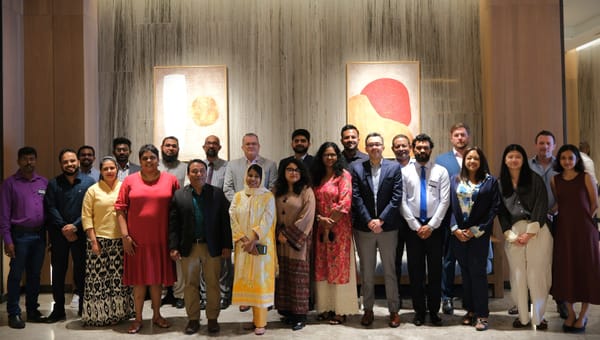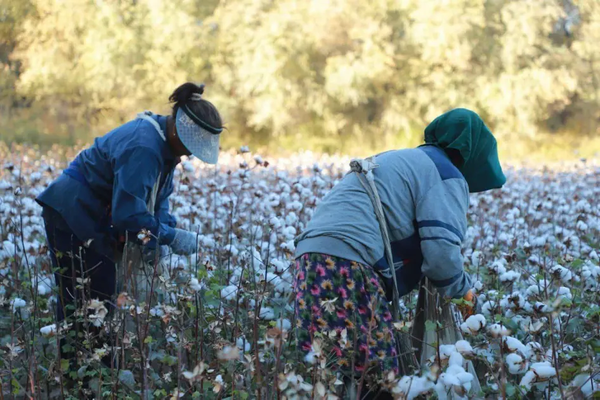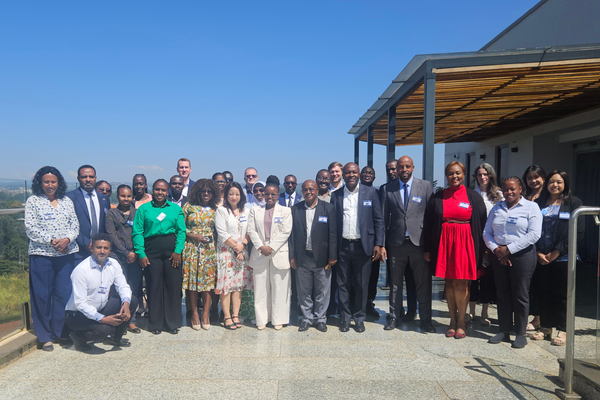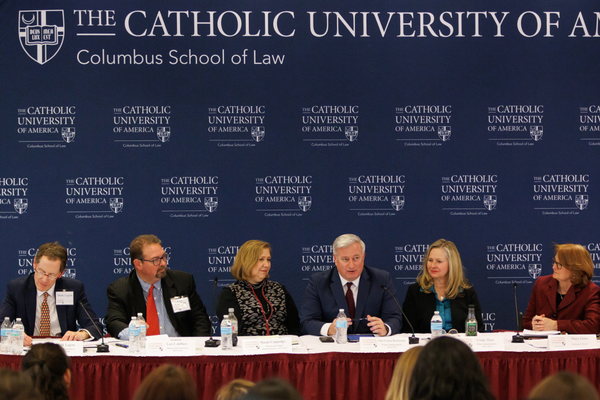Research on trafficking for forced criminality has helped shift Thai authorities’ attitudes
HRC’s new report has a noticeable impact on the response to trafficking for online scamming, UN experts express concern over violence against refugees in Tunisian waters, and labour activists in Myanmar call for sanctions against its ruling junta.

A recent report on forced criminality in online scam compounds, produced by Humanity Research Consultancy (HRC) in partnership with Winrock International and the USAID Thailand Counter Trafficking in Persons (CTIP) Project, has led to a noticeable shift in mindset among responding government and law enforcement agencies, according to those working on the ground. The improved approach demonstrates the way in which research can influence stakeholder attitudes, leading to better outcomes and positive developments for survivors.
Accounts from our forced criminality regional working group, which convenes individuals and organizations from a variety of sectors involved in the response, suggest the report has contributed to a positive change in attitudes among authorities in Mae Sot – a border area and destination for victims in which detention centers are particularly busy – resulting in smoother National Referral Mechanism (NRM) processes and improved outcomes. The report, Responses to Trafficking in Persons for Forced Criminality in the Thai Context, seems to have had an impact contributing to a change of attitude, members say.
The report found that, while Thai authorities may have a comprehensive understanding of the current laws in place concerning human trafficking and forced criminality in Thailand, the implementation of such regulations varies across provinces, leading to inconsistent treatment and screening of survivors. Furthermore, the notion of forced criminality does not always extend to the illicit activities survivors from scamming compounds were forced to be involved in, resulting in many survivors being charged as criminals. Thai survivors going through the NRM process will often face personal biases from the individual officers conducting their screening, many of whom may perceive them as criminals from the outset, the authors note.
Meanwhile, while non-Thai citizens who manage to escape scamming compounds and are detained by Thai police can attempt to register as trafficking survivors, this can result in weeks or months of investigation, and the success rate varies across different regions depending on the way in which enforcement authorities understand human trafficking for forced criminality, their interpretation of laws, and the level of empathy they extend towards survivors. Furthermore, the absence of standardized procedures, notably in the screening process, hampers the efficacy of forced criminality screening and undermines the overall integrity of the process. The combination of a strong desire among survivors to return home swiftly and apprehension regarding the prospect of detention leads the majority to simply accept any charges and leave with a criminal record.
In 2023, Thai police estimated that 70 per cent of survivors returning to Thailand after being trafficked into compounds to conduct online fraud were charged for their alleged crimes, demonstrating a lack of proper implementation of the non-punishment principle, which states that survivors must not be prosecuted for crimes they had no choice but to commit as a result of their human trafficking situation. Although Thailand’s domestic, bilateral and regional legal frameworks do not specifically mention this concept by name, references to liability exceptions for victims in circumstances that would apply in the forced criminality context imply that the principle nonetheless underpins them. More must therefore be done to specifically address the issue of forced criminality and online fraud and make these protections clearer for survivors, the authors say.
Already, the report has played a role in bringing attention to what has not been working, according to practitioners. Working group members have reported that the NRM process in Mae Sot has become more constructive, with Thai immigration officials responding more positively and efficiently to requests, and meetings with central law enforcement having a more favorable tone.
The report makes several recommendations for law enforcement – the fact that implementation seems to have started on some of them clearly shows the value of such research. Among other suggestions, the authors recommend that law enforcement: establish a standard questioning process and format within the NRM to ensure uniformity and uphold the integrity of the screening process; broaden authorities’ understanding of forced criminality to include forced online fraud; work more closely with NGOs, international organizations, academics, and other legal entities to support the modification of victim identification processes by including indicators of forced criminality; and establish formal working relationships between local NGOs and authorities to ensure NGOs are involved in the screening process and able to offer support where needed.
Here’s a round-up of other noteworthy news and initiatives:
UN experts say they are alarmed by reports of human rights violations, including physical violence, removal of engines and fuel, and capsizing of boats, against migrants, refugees and victims of trafficking during search and rescue operations in Tunisian waters and transfers to border areas. Between January and July 2024, 189 people were reported to have lost their lives during crossings and 265 during interception operations at sea; 95 people are reported missing and, in certain cases, could be victims of enforced disappearance, the experts say.
A series of major police raids on scamming compounds in the Western Province of Sri Lanka has led to the arrest of nearly 200 foreigners over the past week, the majority of whom are Chinese nationals, according to this news report. The existence of online scamming centers in Sri Lanka came to light earlier this year, following several high profile raids, with law enforcement agencies voicing concern over their prevalence.
Meanwhile, India’s National Investigation Agency (NIA) charged five members of an alleged human trafficking syndicate last week, accusing them of sending Indian nationals to Laos to work in scamming centers. The five operated though a consultancy firm that investigators say functioned as a front for human trafficking. The move came on the same day that India’s Prime Minister Narendra Modi visited Laos for the India-ASEAN and East Asia summits.
A policy report from the Modern Slavery and Human Rights Policy and Evidence Centre aims to inform the new UK Government’s response to modern slavery, drawing on analysis and research funded and produced by the Centre, wider evidence and data, and its experience of engaging with lived experience experts. Addressing modern slavery requires a systemic, long-term and holistic cross-Government response, with more focus on prevention, given the many different root causes and drivers of vulnerability to exploitation, the authors say.
Labour activists in Myanmar are facing severe retaliation from the military junta, including arrests, torture and murder, for protesting against labour exploitation and conditions of modern slavery. Khaing Zar Aung, president of the Industrial Workers Federation of Myanmar, who has been blacklisted by the junta and forced to live in exile, is now calling for a total arms embargo and comprehensive economic sanctions, and for multinational companies to exit responsibly from the country.
Pharmaceutical goods linked to forced labour in China’s Xinjiang region are making their way to Japan and the U.S., despite efforts by those countries to block such imports, trade data and a new study show. The report, by the Center for Advanced Defense Studies (C4ADS), says the U.S. Food and Drug Administration and U.S. Agency for International Development, via its contractor Chemonics International, have not cut ties with Xinjiang-linked drug suppliers, despite U.S. laws that require American companies to ensure there is no forced labour in their supply chains.
The European Court on Human Rights (ECtHR) has found that Spain violated the rights of a woman who was trafficked to the country from Nigeria as a minor for the purpose of sexual exploitation. Her 2011 criminal complaint against her traffickers, which alleged that Spanish authorities’ investigation into her case had been inadequate, was dismissed in 2017, but the ECtHR found the lack of effort to investigate human trafficking allegations and subsequent failure to implement criminal law provisions constituted a violation of Spain’s duty under the European Convention on Human Rights.
Join UN Special Rapporteur Tomoya Obokata and other experts for an online discussion on the role of workers' organizations in preventing and addressing contemporary forms of slavery on October 18.




